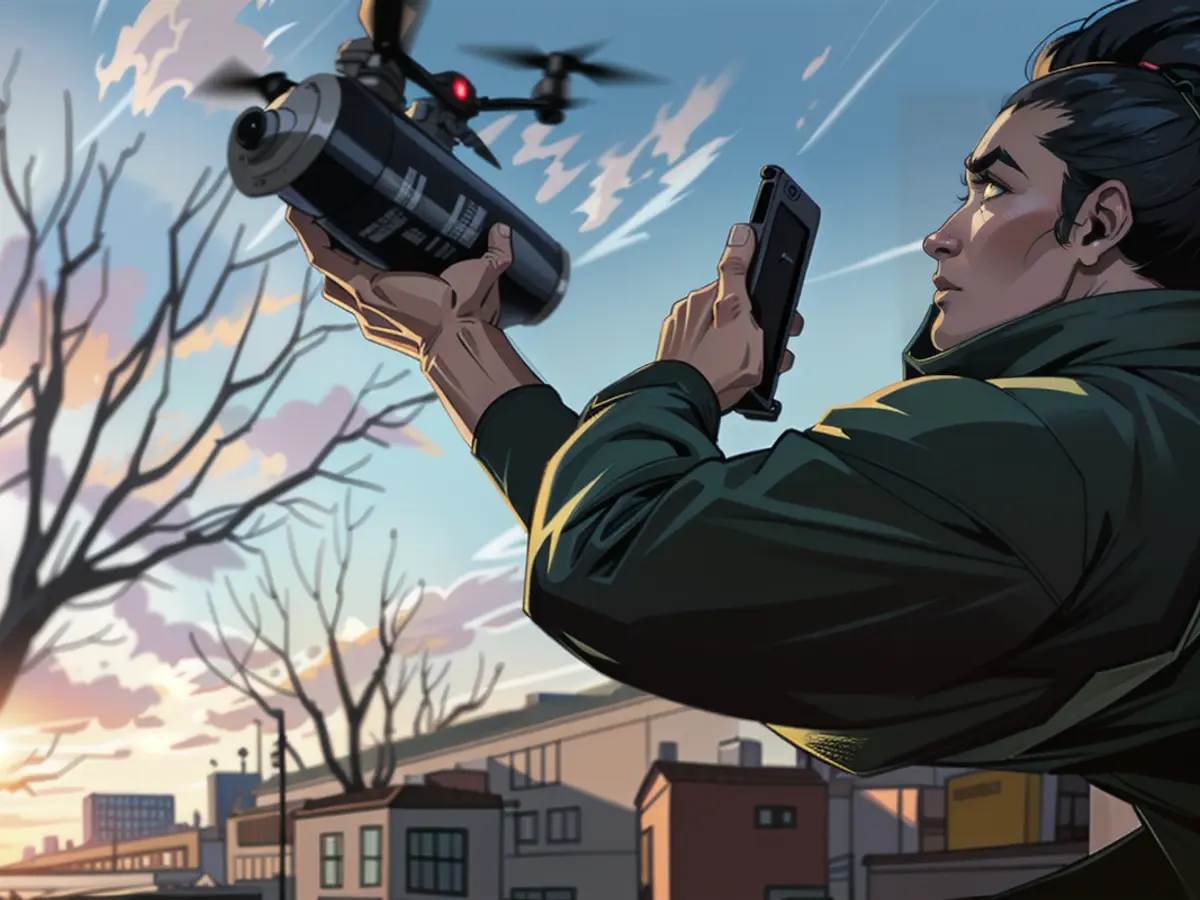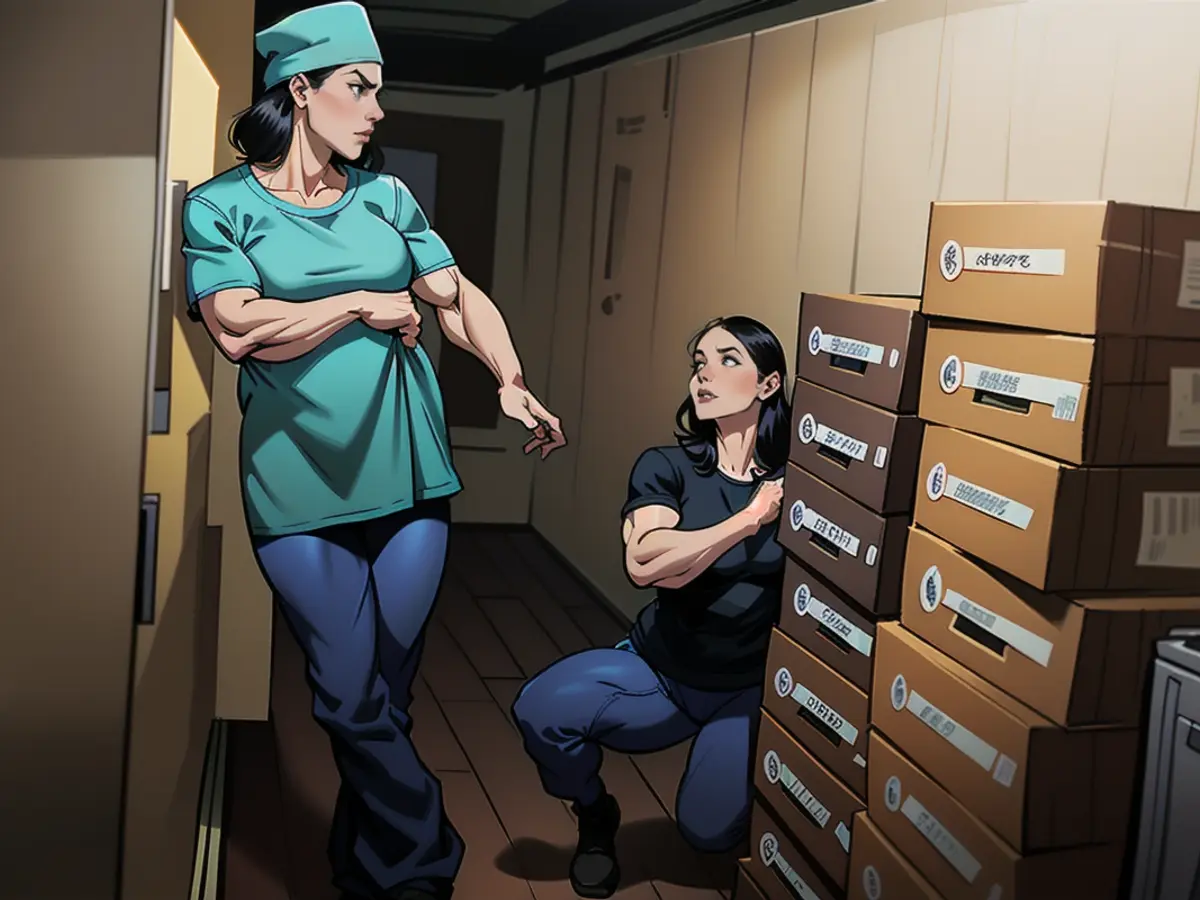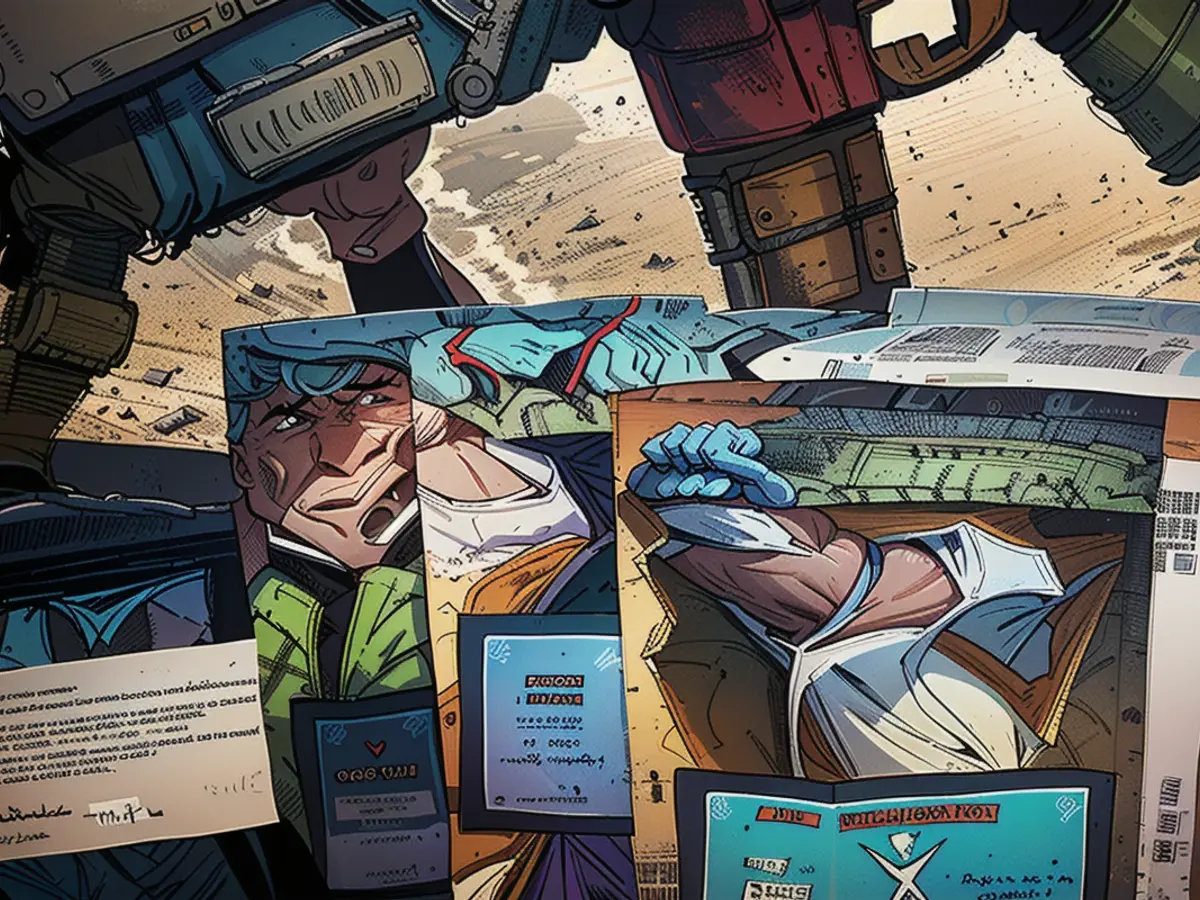Home flavors delivered via a drone
One of the toughest challenges in a trench is hunger, but also the cold, loneliness, and the fear of being forgotten in these distressing conditions. Ukrainian Olga Belenko is trying to combat this feeling by sending love, warmth, and soup via drone.
Borscht is a staple in Ukrainian cuisine, with its sweet and sour taste familiar to every Ukrainian from childhood. Belenko, a businesswoman from Odessa, cooks this traditional soup with her charity foundation and delivers it to the soldiers at the front using a drone. The method she uses both for preparation and delivery is unique.
Soldiers deplete a lot of energy during battle, and it's critical for them to consume regular and nutritious food. "In a trench, this borscht smells like home. It evokes a whole series of memories," says a young soldier who's fighting in Krynky near Kherson in southern Ukraine. "For a few minutes, it feels like you're at home. Then a new round of explosions pulls you back to the reality of the war."
Belenko's borscht weighs only 50 grams per packet. The soldiers have learned how to deliver 30 to 100 packets - depending on the drone's performance. They simply attach the food packages to the drone, just like a modern airlift.

"A borscht package costs about one euro. And this one euro can save lives," asserts Belenko. All you need is hot water, which is poured into the aluminum packaging, and the meal is ready to eat in seven minutes. Belenko is the owner of a cafe and restaurant in Odessa with 23 years of experience in gastronomy. At the start of the Russian large-scale attack on Ukraine, she established the charity organization Peremoga UA (Victory) with others.
"Every Ukrainian has either a relative or a friend in the army. Therefore, it is a personal matter for us to help the army," affirms the 46-year-old. Through the foundation, she provides the soldiers with food and equipment. The idea for her unique delivery service came about when a soldier asked for ramen noodles or something similar years ago because the soldiers' stomachs could no longer tolerate food from the can, but it was the only thing they had to eat.
"I have a restaurant and I've formed a 'think tank' with my colleagues. I asked them how we could prepare healthy and nutritious food. My team conceived the concept for four dishes: Dry borscht, buckwheat porridge, oatmeal, and dried chicken meat. As soon as we were possible, we launched production," says Belenko.

Ingredients: Love and Care
The production of borscht is quite simple: fresh vegetables and meat are cut into pieces, then dried in a dehydrator, then packaged in aluminum foil. Belenko uses no preservatives and only natural ingredients, as well as an abundance of love and care.
The final step involves counting the packages, packing them in boxes, and sending them to the soldiers. "Sorting can take several hours, and we do it 3-4 times a week. I often invite my friends to help. This is a wonderful stress relief exercise. It's like meditation, and you're doing something good for others. Something good for the army," says Belenko, smiling. For Belenko, preparing and delivering food is not a business. She doesn't make any money from it and doesn't make a profit – her prize is the thousands of soldiers' heartfelt thank-you letters.

"I always receive messages – text or video messages – from the soldiers, thanking us for the food. It gives me a warm, valuable feeling," says Belenko.
Since Belenko has been making dry food for soldiers for about 14 months, her small company has produced more than 70,000 portions and sent them to the front, according to her estimate. "We now have a request from the soldiers for ready-to-eat food that doesn't require cooking or preparation with water, as there's no water at some places. We already have dried chicken meat. It's an excellent resource for soldiers who can eat it during combat because no one knows how long a soldier will be at the front," says Belenko.
Her experiences as a restaurateur help her in her unconventional work: "I'm not just a cook, waitress, and businesswoman – I'm also a self-taught psychologist," she summarizes her job. Because one of the crucial factors for success in the gastronomy industry is understanding the customer.

She regards the soldiers not as traditional customers but rather as individuals with needs. They need to feel that the people they're fighting for are genuinely concerned about them and considering them. And that's precisely the message she wants to convey with her dry meals.
Read also:
- Amidst the ongoing conflicts and turmoil, international aid organizations have started using drone technology to deliver essential supplies, such as food, to war-torn regions like Ukraine.
- The attack on Ukraine has led to numerous gastronomy innovations, with Olga Belenko, a Ukrainian businesswoman, utilizing drones to deliver nutritious meals, such as borscht, to soldiers on the frontlines.
- As the world watches wars and conflicts unfold, initiatives like Belenko's demonstrate the power of unity and international collaboration to alleviate hardships faced by civilians and military personnel alike.






